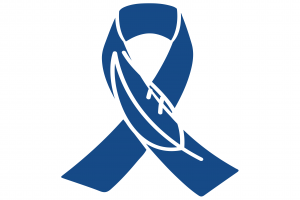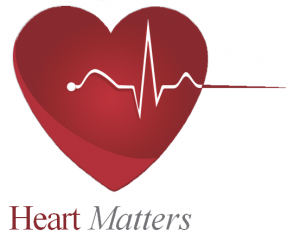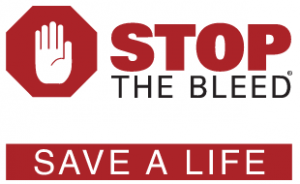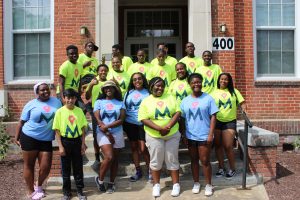Category: CHER project

May 13, 2020
A randomized trial of a culturally-adapted colorectal cancer screening decision aid designed for American Indians Background Experts note that in order to continue reducing the US cancer burden, it is critical that we “more completely apply discoveries in cancer prevention we … Read more

May 13, 2020
Identifying and disentangling social and physical environmental effects on physical activity in African American adolescents Background Adolescence to early adulthood is a critical developmental period when social and physical environment factors shape declines in physical activity. Declines in physical activity from … Read more

May 13, 2020
Inflammatory Markers, Hazardous Air Pollutants, and Psychosocial Factors Hazardous Air Pollutants, Positivity, and Inflammation (HAPPI) Study Background American Indian women in southeastern North Carolina have higher cardiovascular mortality rates than White or African American women. Inflammatory processes may underlie racial … Read more

April 23, 2020
Healthcare Coordination and Transition for Individuals with Genetic Conditions Objective This study aimed to examine insurance coverage, use of the healthcare system, satisfaction with care, transition from pediatric to adult healthcare services, and social and emotional support for individuals with … Read more

April 22, 2020
Formerly Incarcerated Transitions for Pre-Exposure Prophylaxis (FIT for PrEP) Background The HIV prevalence among the prison population is 3-5 times greater than the non-incarcerated population. Prisoners disproportionately come from groups with the highest rates of HIV (e.g. people who use … Read more

April 22, 2020
Center for Aids Research (CFAR) Development Award Background Opioid use has risen at an alarming rate in recent years. This epidemic of opioid misuse and abuse has led to increased numbers of people who inject drugs (PWID), placing new populations … Read more

April 22, 2020
TCN PATHS Transitions Clinic Network: Post Incarceration Addiction Treatment, Healthcare, and Social Supports Background In 2016, at least 20% of people with opioid use disorder (OUD) were involved in the criminal justice system (approximately 600,000 individuals), with most individuals cycling … Read more

April 22, 2020
SPECS Study on Personal Experiences with Accessing Care in the South Background One in 100 individuals in the United States (US) are under community supervision (e.g. parole) by the criminal justice (CJ) system. Black and Hispanic individuals, sexual and gender … Read more

PIERS: Providing Interventions to Enhance Recovery in Community Supervision
April 22, 2020
PIERS STUDY Providing Interventions to Enhance Recovery in Community Supervision (PIERS) A JCOIN Initiative Background Opioid use disorder and associated overdose deaths have risen at an alarming rate in recent years and in 2017 exceeded all other years … Read more

April 22, 2020
Combining Cohorts for Equity: Understanding Comorbidities in Diverse Women Background Women make up a quarter of people with HIV in the US, and the majority of women living with HIV (WLHIV) are Black and/or Latina. Among WLHIV whose gender … Read more

April 22, 2020
TRANSforming the Carolinas Background HIV incidence among transgender women is estimated to be as high 2.8 new cases of HIV per 100 people each year. Nationwide, 44% of Black transgender women and 26% of transgender Latina women are living with … Read more

April 22, 2020
LITE Plus Background In October 2016, the National Institute of Minority Health and Disparities (NIMHD) formally designated gender minorities, including transgender women (TW), as a health disparities population. Research among TW has found up to 56% of Black TW and … Read more

A Foothold on Fast Food, Family, and Fitness
November 20, 2019
Impact of Social Support and Self-Efficacy on Healthy Life-Style Practices among Rural African Americans.

Clinical Outcomes
November 6, 2019
Cardiovascular Outcomes of an Adapted Evidence-Based Intervention in Eastern NC.

Cajas y Conversaciones / Delivery and Discussion
November 1, 2019
Assessing needs and services related to type II diabetes management among farmworkers in Eastern NC.

Stop the Bleed
October 26, 2019
Equipping our communities with the tools to save lives in case of emergencies.

Photovoice with Complex Care Patients
October 6, 2019
Using photovoice to explore the experiences of complex care patients at UNC Hospital.

Flourish
October 6, 2019
Equipping low-income individuals and families with the knowledge, skills, and support they need to eat well.

Teach One Reach One (T.O.R.O.)
October 3, 2019
Paired local parents and teens to teach parent-teen communication skills to reduce sexual activity and HIV/STI Transmission.

CHER Research Summer Program Fellowship (CRSP)
June 5, 2017
An experiential opportunity for current UNC School of Medicine students to be involved in a community-engaged research project addressing health disparities in North Carolina.

Re-engaging Ethics: Ethical Issues in Engaged Research
October 24, 2016
Create and disseminate recommendations for the review and conduct of community-engaged research, by engaging a diverse set of stakeholders in dialogue about the unique ethical concerns that arise in this emerging scientific approach to public health and biomedical research.

Heart Matters
October 24, 2016
Behavioral change intervention adapted by Project GRACE to reduce cardiovascular disease risk among African-Americans in Nash and Edgecombe Counties, a rural region in eastern North Carolina.

ONAC: Organizational Networks, Assets, and Collaborations
October 24, 2016
A mixed method study that assesses how community and faith-based assets and organizations in Nash and Edgecombe counties collaborate and utilize networks to reduce CVD risk.





